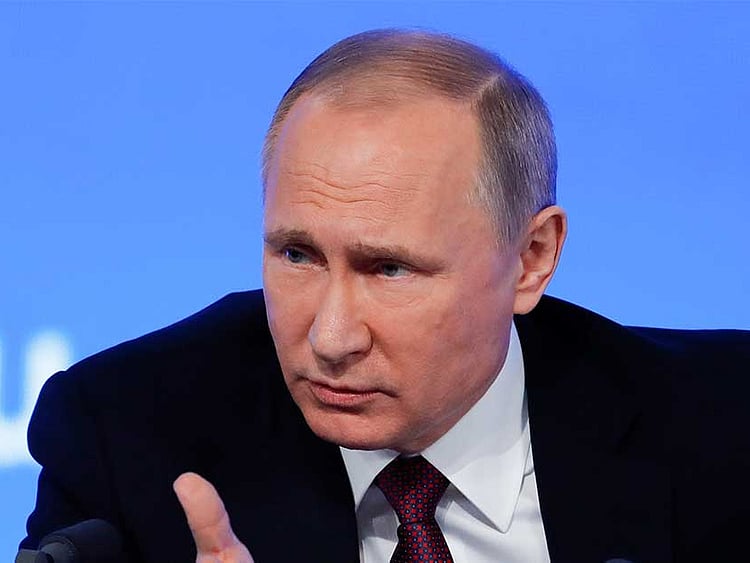When a Turkish police officer assassinated Andrey G. Karlov, Russia’s ambassador to Turkey, it felt for a moment as if the whole world shook. The killing took place at a time of global uncertainty and reminded some observers of the start of the First World War.
The truth, however, is that despite shaky relations between Russia and Turkey in recent years, the assassination is unlikely to lead to more tension between the countries. Indeed, it will probably push them even closer together, as Moscow realises that this is a perfect opportunity to draw a weak and unstable Turkey into the Russian orbit.
Karlov’s assassination is not the first test for the Turkish-Russian relationship. The war in Syria, where Russia backs the government of President Bashar Al Assad, and Turkey has supported rebel groups, has also threatened to suck the two historical powers into confrontation.
In November 2015, the Turkish Air Force shot down a Russian plane near the Syrian border, the first time a member of Nato is believed to have fired on a Russian plane in some 50 years.
For weeks afterwards, the two countries were engaged in a war of words.
It never escalated, though, and this June, President Recep Tayyip Erdogan of Turkey apologised to his Russian counterpart, Vladimir Putin, for the incident. Erdogan was rewarded the next month when, at least according to the story put forward by both governments, Putin was the first head of state to come to his defence after a failed coup attempt.
Since then, relations between the two countries have improved considerably. Turkey’s stability, on the other hand, has only deteriorated.
An unwinnable three-front war
The assassination of the Russian ambassador in the heart of Turkey’s capital has laid bare how bad things have become. After the coup attempt, Erdogan began a large-scale purge of state institutions. Thousands of veteran police and intelligence officers were fired or jailed. According to some reports, nearly half of the military’s generals have been imprisoned. The Air Force is largely out of commission.
Meanwhile, Turkey is fighting an unwinnable three-front war in Syria: Supporting rebel proxies in their battle against Al Assad’s government, taking part in operations against Daesh (the self-proclaimed Islamic State of Iraq and the Levant) and, most important for the Turkish government, trying to limit the gains of Kurdish groups.
Given all of these constraints, Russia will find that Turkey is easy to pressure. Russia is intent on asserting itself as the primary power-broker in Syria. It is well on its way to achieving this status, having just helped Al Assad’s government achieve a major victory in Aleppo. But in order to cement its power, Russia will need Turkish acquiescence.
There are signs that Turkey is already getting onboard.
Karlov’s assassin cited Russia’s bombing of Aleppo as motivation. The Army of Conquest, a Syrian extremist group, reportedly claimed responsibility for the murder. Yet, Erdogan’s government was quick to dismiss Syria as an issue.
Instead, Turkish authorities pointed fingers at Fethullah Gulen, a Pennsylvania-based cleric who is accused of orchestrating this July’s coup attempt against Erdogan. In the official Turkish narrative, accusing Gulen of terrorism typically insinuates that the United States is actually to blame. The Turkish government and the US have been clashing recently over American support for Kurds in Syria, as well as Turkey’s extradition request for Gulen.
Fighting terrorism
The Russian government has similarly been quick to play down tensions with Turkey in the wake of the assassination, promising to work with Turkey to investigate the killer and to work together to fight terrorism. It knows that there is no need to antagonise Ankara now, when it can instead cajole it. The day after Karlov was killed, Moscow hosted a summit meeting with Turkey and Iran to discuss Syria’s future.
This situation should trouble the United States and Nato. Putin’s ultimate goal is not just to dominate Syria, which he is already doing, but also to create cracks in the West’s alliances.
It is a relief that Karlov’s assassination will not, as so many people feared, lead to conflict between Russia and Turkey. But the idea of Erdogan’s weak government finding itself subservient to the Kremlin, rather than maintaining its alliances with the United States and Nato, is also worrying.
— New York Times News Service
Cengiz Candar is a distinguished visiting scholar at Stockholm University Institute for Turkish Studies and the author of Mesopotamia Express: A Journey in History.
Sign up for the Daily Briefing
Get the latest news and updates straight to your inbox
Network Links
GN StoreDownload our app
© Al Nisr Publishing LLC 2025. All rights reserved.
